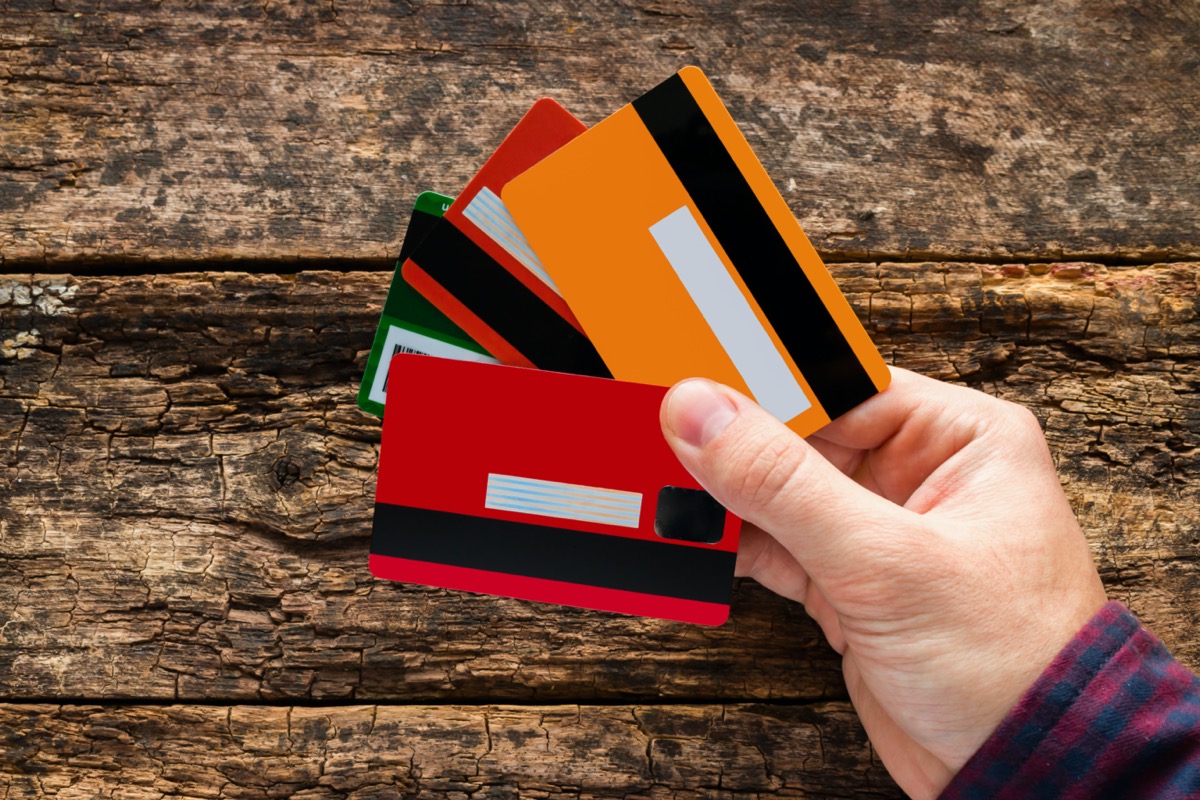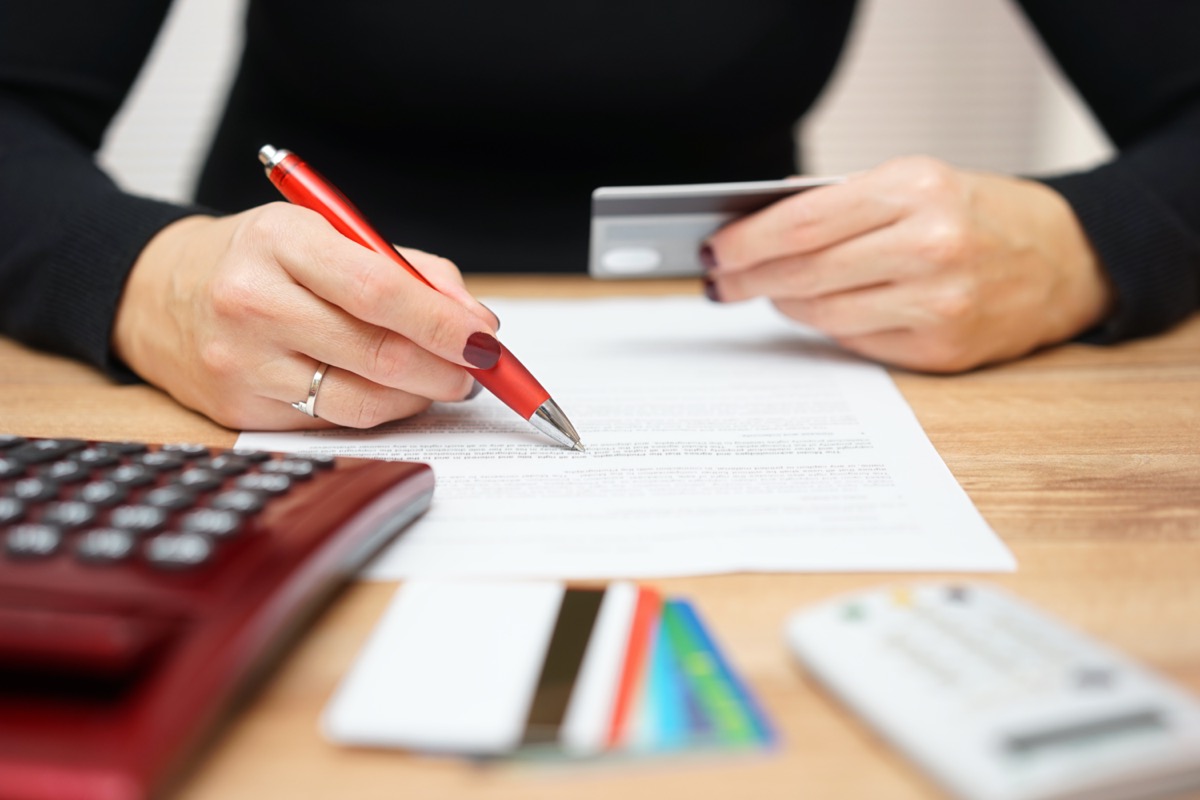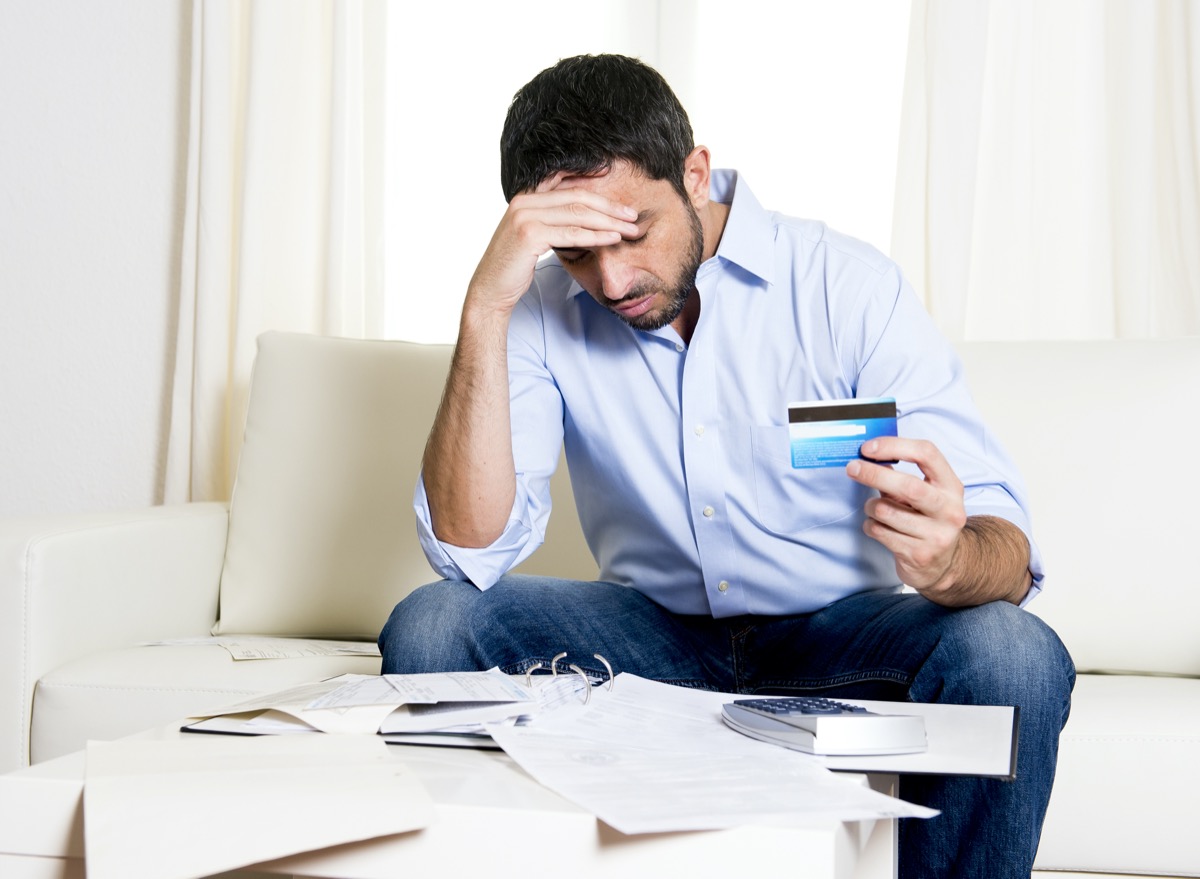Exactly How Many Credit Cards You Should Have

If you’re looking to get a better handle on your spending and maximize your credit score, you may be wondering how many credit cards you need to have in your wallet. Unfortunately, there’s no crystal ball or math equation that will tell you the perfect number of credit cards to have. For some people, one credit card is too many, and for others, a handful is just right. So how many should you have? Read on to learn the exact number of credit cards that’s right for you and your spending habits. And for more on how to keep your credit card bills low and your wallet full, learn how This One Word You’re Saying Makes You Spend More Money.
Read the original article on Best Life.
1
However Many You Have, Diversify Your Rewards

No matter how many cards you have, you shouldn’t bother carrying two or more credit cards with the same rewards. What’s the point? Instead, focus on cards offering different rewards.
For example, if you have an airline rewards credit card, think about a general cashback credit card to accompany it if you want more. Or what about a gas credit card or store credit card, such as Target’s, which gives you 5 percent off every order just for using the card?
Think about what you’ll use, and don’t just get credit cards for the sake of getting them. Remember: Carrying two credit cards that offer the same rewards only hurts your chances of getting more rewards.
2
Only Keep One Card (at Most) with Annual Fees

You shouldn’t ever pay annual fees for credit cards unless they offer such great benefits that it’s worth it. In other words, do you earn more rewards than the annual fee costs? If not, ditch it. Ideally, only pay for a yearly fee on one card—if any.
Also, be careful which cards you take on in the first place. Closing credit cards isn’t good for your credit score. It can shorten your credit length or increase your credit utilization, which decreases your credit score. But if you’re needlessly paying for an annual fee, it’s worth canceling. Just don’t make a habit of it. And if you’re having some regrets about a purchase you put on your credit card, here’s The New Way You Can Instantly Get Your Money Back After a Return
3
Stick to One Credit Card If You Are Recovering Or New To Credit

If you just suffered from bankruptcy or are just starting out in adulthood, stick to one credit card. It may even be a secured credit card, and that’s okay.
Get yourself established. Figure out how it works and how well you can or can’t manage the debt. Once you get the hang of it, apply for an unsecured card. Don’t ruin your credit or your chances of getting the best credit cards until you know you’re able to handle it. And if you’ve finally gotten a hang of how to handle your money, but still feel don’t feel content, here’s how Money Only Buys You Happiness Until You Earn This Much, Study Says.
4
Open a New Credit Card To Decrease Your Utilization Rate

Your utilization rate makes up the second-largest portion of your credit score. If you overspent on your other cards, you would need another card to offset the balances.
It sounds weird, but opening another credit card may help your credit score. Here’s why.
Let’s say you have two credit cards, each with a $2,000 limit, and you have a $900 balance on each. That’s a 45 percent credit utilization ratio. That’s way too much. To help your credit score, you need a credit utilization ratio of 30 percent or less.
Opening another credit card will increase your credit line and decrease your credit utilization rate. If you get another card with a $2,000 credit limit and don’t use it, your credit utilization rate lowers to 30 percent, and your credit score may increase.
5
When It’s Perfectly Fine to Have Three or Four Credit Cards

Using a credit card can lead to awesome reward perks and cash back if you’re able to use them responsibly. For instance, if you complete a monthly budget and are able to make all of your purchases with a credit card—and pay them off in full each month—credit cards are a great way to put extra money in your pocket.
By being strategic with your credit card usage, it’s perfectly acceptable to have three or four different cards with different reward options. For instance, you may have one for airline miles and one that gives great cash back. By using both of these to your advantage, you can easily rack up free flights and get a nice cash back check at the end of the year.
6
When You Shouldn’t Have Any Cards at All

However, if you struggle with overspending, a credit card can be your worst enemy. If you have had issues with buying things when you didn’t have the money, you may fall into the “you shouldn’t have a credit card” group.
If you can’t trust yourself to pay the bill off in full each month or only charge what you can pay off, avoid credit cards until you are able to change your spending habits. While credit cards can help you build credit, they can also destroy your credit score if you do not use them responsibly.
If you feel you need one “just in case of emergency,” lock it up. Put it in a safe or give it to a trusted family member. If you need the peace of mind knowing you have a backup should something happen, do it, but don’t let yourself use it.
There’s not a one-size-fits-all answer in terms of exactly how many credit cards you should have. You can have one or ten credit cards and be right. It depends on your financial situation and willpower. Your resulting credit score will depend on your financial responsibility.
There’s no sense in carrying rewards cards if they’ll hurt your credit score and cost you thousands of dollars in interest. If you manage them right, credit cards can be helpful and even profitable if you time your rewards just right. And for more great money saving advice, don’t miss these Sneaky Ways Retailers Are Tricking You to Overspend Right Now.